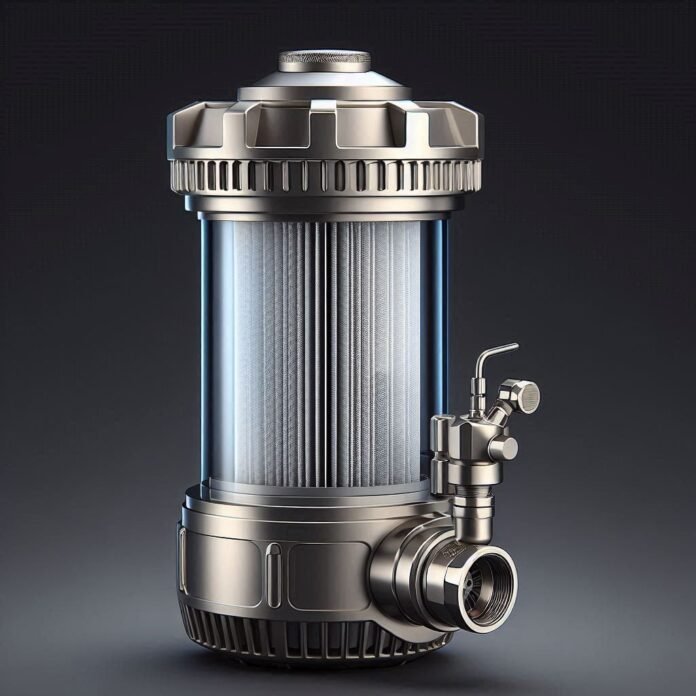Cartridge filter housings are essential components in various filtration systems, playing a pivotal role in maintaining the quality and clarity of liquids. These housings not only protect the filters but also enhance their efficiency by ensuring a stable flow rate and optimal filtration performance. When it comes to selecting the right cartridge filter housing, several critical factors come into play. In this guide, we will explore how to choose the best cartridge filter housing tailored to your specific needs.

1. Assess Your Filtration Needs
The first step in choosing a cartridge filter housing is to assess your filtration requirements. Consider the type of contaminants you need to remove from your liquid. Are you dealing with sediment, bacteria, or chemicals? Understanding your filtration needs will help you identify the appropriate filter type and housing size. For example, if you’re filtering water for drinking purposes, you’ll need a housing that accommodates filters designed to eliminate harmful pathogens and particulates.
2. Consider the Flow Rate
Flow rate is a crucial factor in any filtration system. It refers to the volume of liquid that can pass through the filter housing within a specific time frame, typically measured in gallons per minute (GPM) or liters per minute (LPM). Choosing a housing with a flow rate that matches or exceeds your needs is vital for efficient operation. If the flow rate is too low, it may result in pressure build-up and reduced filtration efficiency. Conversely, a housing with a significantly higher flow rate than necessary can lead to uneven distribution and ineffective filtration.
3. Material Selection
The material of the filter housing significantly impacts its durability, compatibility, and performance. Common materials used in filter housings include stainless steel, polypropylene, and carbon steel.
- Stainless Steel: This material offers excellent strength and corrosion resistance, making it suitable for harsh environments and aggressive chemicals. It is often preferred in industries such as food and beverage, pharmaceuticals, and chemicals.
- Polypropylene: Lightweight and cost-effective, polypropylene is an excellent choice for less demanding applications. It provides good chemical resistance and is often used in residential and light industrial applications.
- Carbon Steel: While not as resistant to corrosion as stainless steel, carbon steel is durable and cost-effective. It is commonly used in applications where exposure to corrosive substances is minimal.
Choosing the right material depends on your specific application and budget constraints.
4. Size and Configuration
Filter housings come in various sizes and configurations. Selecting the right size is essential to accommodate the number of cartridges you plan to use. Cartridge sizes can range from small to large, depending on the volume of liquid being filtered.
Additionally, consider whether you require a single or multi-cartridge housing. Single-cartridge systems are typically easier to install and maintain, while multi-cartridge housings are better suited for high-volume applications where multiple filters are necessary to meet the desired flow rate.
5. Pressure Rating
The pressure rating of a cartridge filter housing indicates the maximum pressure it can withstand without failing. This is crucial for ensuring the safety and reliability of your filtration system. When selecting a housing, ensure that its pressure rating is suitable for your application. A housing with a low pressure rating may be prone to leaks or failures, while an excessively high rating can add unnecessary costs. Always consult the specifications of your system to determine the appropriate pressure rating.
6. Maintenance and Accessibility
Ease of maintenance is another important consideration when choosing a cartridge filter housing. Regular maintenance, including filter changes and system checks, is essential for optimal performance. Select a filter housing that allows for straightforward cartridge replacement. Look for features like quick-release mechanisms or hinged doors that simplify access to the cartridges.
Additionally, consider the location of the housing. If it’s in a hard-to-reach area, choosing a design that facilitates easy maintenance becomes even more critical. A well-designed housing will minimize downtime and help you maintain consistent filtration quality.
7. Check Compatibility with Filters
Compatibility between the filter housing and the cartridges you plan to use is crucial. Different filters have unique dimensions and designs, so it’s essential to verify that your chosen housing can accommodate these specifications. Always check the manufacturer’s guidelines to ensure that your selected cartridges fit securely and perform as intended.
8. Evaluate Cost vs. Quality
While budget considerations are important, don’t compromise on quality. A well-constructed filter housing may have a higher upfront cost but can lead to lower maintenance costs and a longer service life. Investing in a reliable product ensures that you won’t have to frequently replace the housing or deal with inefficient filtration. Look for manufacturers that offer warranties or guarantees to provide peace of mind regarding your investment.
9. Seek Recommendations and Reviews
Researching user reviews and seeking recommendations from industry experts can provide valuable insights into the performance and reliability of different cartridge filter housings. Connect with colleagues or professionals who have experience with specific brands or models. This firsthand knowledge can help guide your decision and ensure you select a housing that meets your expectations.
10. Consult with Manufacturers
If you’re still uncertain about which cartridge filter housing to choose, don’t hesitate to consult with manufacturers. Many manufacturers offer customer support services, including technical advice on selecting the best housing for your specific application. They can provide insights into product features, compatibility, and best practices to enhance your filtration system’s efficiency.
Conclusion
Choosing the right cartridge filter housing is essential for achieving effective filtration and maintaining the quality of your liquids. By carefully assessing your needs and considering key factors such as flow rate, material selection, size, and compatibility, you can find a solution that ensures optimal performance and reliability. Take your time to research and consult with experts, as a well-informed choice can lead to significant improvements in your filtration processes. With the right cartridge filter housing, you’ll achieve cleaner, clearer liquids and enhance the overall efficiency of your operations. read more..

